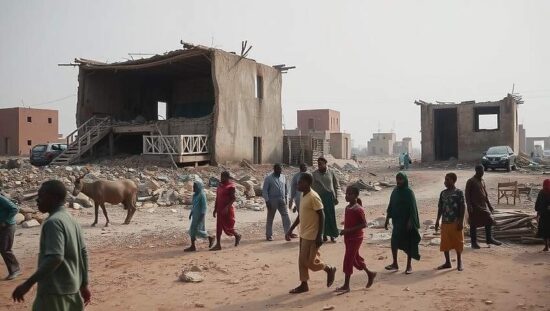The humanitarian situation in Sudan has deteriorated into what officials are now calling the world’s largest crisis, prompting stark warnings from German officials regarding escalating violence and a deepening catastrophe. Serap Güler, the German Foreign Ministry’s State Secretary, recently returned from a visit to Sudan and Chad, describing a scene of widespread suffering and a palpable sense of impending escalation.
Güler, who became the first European politician to visit the region since the conflict erupted over two years ago, voiced grave concerns about the actions of the Rapid Support Forces (RSF) militia, citing daily reports of “horrific acts” including shootings and sexual violence. Her assessment reinforces growing anxieties that the situation is spiraling beyond containment, suggesting the earlier fears about the conflict’s trajectory are increasingly justified.
During her visit, Güler met with Abdel-Fattah al-Burhan, the de facto leader, highlighting the urgency for international intervention. The escalating violence, coupled with the sheer scale of the humanitarian need, demands increased scrutiny and active pressure on the warring factions.
Güler stressed the imperative for the international community to move beyond passive observation, arguing that the conflicting parties have operated under the assumption of impunity for too long. “We must make it clear: we are watching you” she stated, signaling a shift towards greater accountability. While acknowledging the seemingly insurmountable challenges, Güler emphasized the vital necessity of pushing for a ceasefire and continuing to provide what limited humanitarian aid is possible.
The crisis is also unleashing a refugee crisis neighboring countries. During her visit to Chad, Güler observed conditions in a refugee camp housing approximately 100,000 displaced Sudanese – primarily women and children – where resources are critically scarce. The provision of just four liters of water per person daily for drinking, washing and cooking, coupled with a single doctor for the entire population, underscores the desperate circumstances facing the refugees and highlights the strain on Chad’s already burdened infrastructure.
The situation reveals a stark indictment of the international response to date and raises critical questions about the effectiveness of existing diplomatic efforts. Ultimately, a lasting solution requires a concerted effort to address the underlying political and economic factors fueling the conflict, alongside meaningful measures to ensure the protection of civilians and prevent further atrocities.





